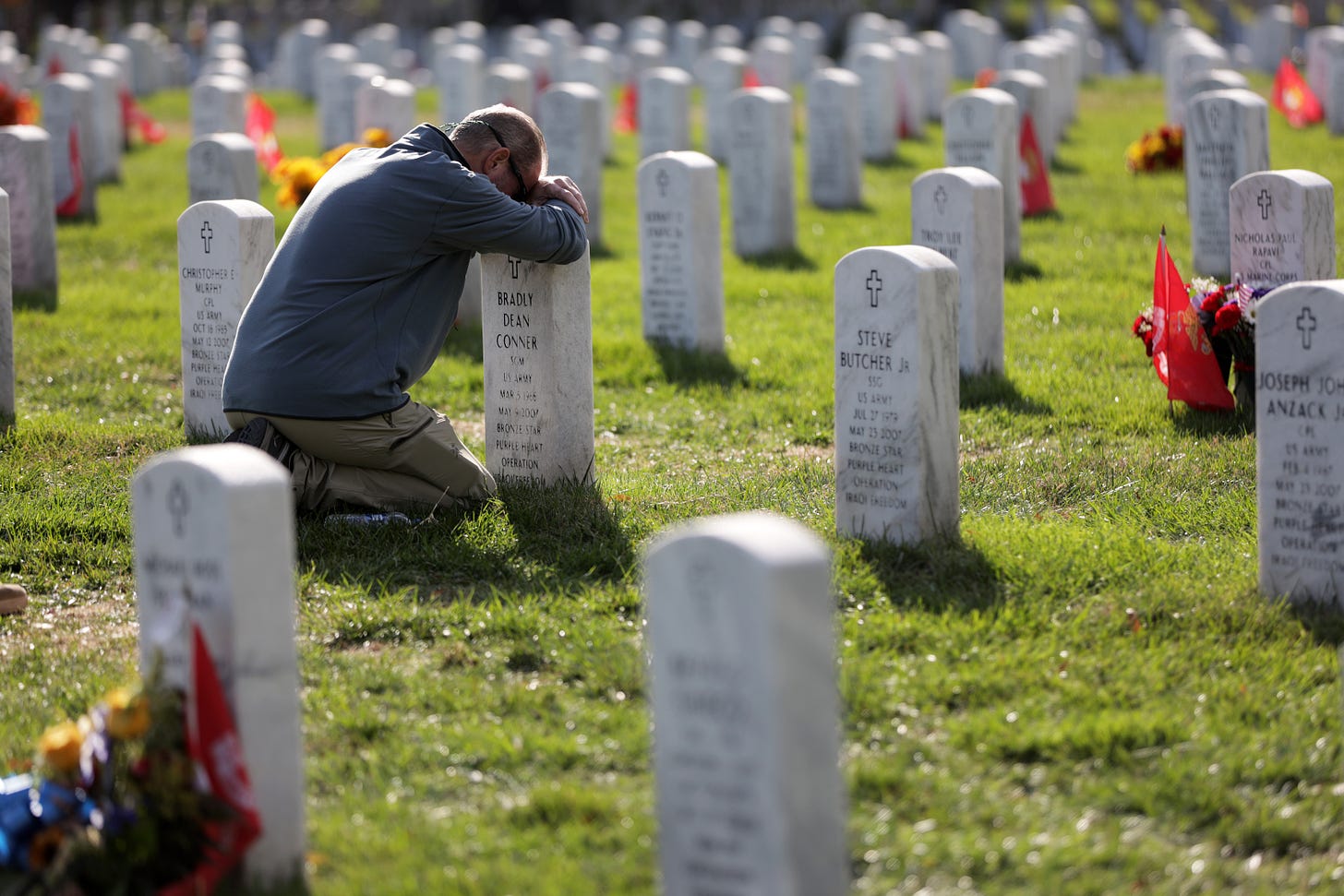Memorial Day.
It is a time to gather with friends and family, enjoy a barbecue, a ball game, an adult beverage or two. It is the unofficial beginning of summer. A season of graduations and transitions. A time to hit the pool for the first time or the stores for a holiday weekend sale.
But it is also a day steeped in meaning. Few days on the calendar give me greater pause.
“War is hell” is a phrase that rolls easily off the tongue. But anyone who has seen war up close knows that the full import of those three simple words echoes to the bottom of the soul.
War is death and pain, sights and sounds that no human should ever be forced to see or hear. It is fear and hopelessness and desperation. It is a supreme injustice — the slaughter of innocents and innocence.
We readily appropriate the metaphors of war to describe a host of human pursuits. For example, in politics we talk about “battleground states,” the “frontlines” of some policy disagreement, and months-long political “campaigns.” Talented politicians have many rhetorical “weapons” at their disposal. Those who lose must “surrender” to the verdict of the voters.
These terms and others from the battlefield are part of our vernacular. We use them without thinking. But on this day in particular, I try to honor what those words originally meant.
War infuses so much of human history that it is understandable that it occupies so much of our discourse. Politics, as we can see, is serious business. And it is true that the decisions politicians make can be matters of life and death. But the gravest choice our political leaders must make is the one sending young men and women — and they are almost all very young — off to battle.
One thing that comes with age in contentious times is that you end up living through many wars. And you are keenly aware of those who were your peers, and then your children’s peers, and then perhaps even your grandchildren’s peers, who went off and didn’t come home.
One gets a sense of the scale of sacrifice when visiting a military cemetery. They are among the calmest places on Earth, which is striking because war is the very opposite of peacefulness. The neat graves lined together in tidy rows contain bodies that were violently torn apart by bullets and bombs. Those whose lives were suddenly cut short now march together toward eternity.
Memorial Day for me is also a time for poetry. I find in verse we can perhaps get a more complete sense of the horror. For this year’s selection, we have chosen “Anthem for Doomed Youth,” by the British poet Wilfred Owen, who fought in the First World War and was killed just one week before the Armistice.
It is in sonnet form, the first stanza representing the view from the battlefield and the second one from the homefront. Owen evokes the true carnage and cost of war, measured in lives that once were vibrant and now are no more.
Thank you, Steady community, for being a place of reflection and support. If you have names and stories of those you knew who died in combat and wish to share them in the comments section, we can make this space a collective act of remembrance.
Anthem for Doomed Youth By Wilfred Owen What passing-bells for these who die as cattle? — Only the monstrous anger of the guns. Only the stuttering rifles' rapid rattle Can patter out their hasty orisons. No mockeries now for them; no prayers nor bells; Nor any voice of mourning save the choirs,— The shrill, demented choirs of wailing shells; And bugles calling for them from sad shires. What candles may be held to speed them all? Not in the hands of boys, but in their eyes Shall shine the holy glimmers of goodbyes. The pallor of girls' brows shall be their pall; Their flowers the tenderness of patient minds, And each slow dusk a drawing-down of blinds.




As a junior high student in the mid to late 60’s, our history/social studies teacher was an avid news junkie as well. We were instructed to follow the war in Vietnam nightly. I remember the coverage a young reporter named Dan Rather regularly provided from the combat zones. So you speak from direct experience and long ago earned the credibility and respect due you.
My brother in law was a combat veteran in the Central Highlands just below the DMZ. He was in artillery and has been haunted to this day by what he saw and lived through. He said their area was so dangerous they never saw reporters. I do not know how those young people survived the physical harm. Much harder though has been the damage to their human selves and souls.
Thank you for your continued voice of sanity, wisdom and reason!
My uncle, Captain Stanley Bernard Haladyna was the pilot of a B-26C Invader with the 13th Bomber Squadron, 3rd Bomber Wing at Kunsan Air Force Base (K-8), Korea. On July 14, 1953, while on a night intruder mission, contact with the aircraft was lost between Sinanju and Pyongyang, North Korea. He was listed as Missing in Action and was presumed dead on July 15, 1954. His parents, my grandparents, were Polish immigrants and he was their youngest son. I don't think they ever got over his loss.